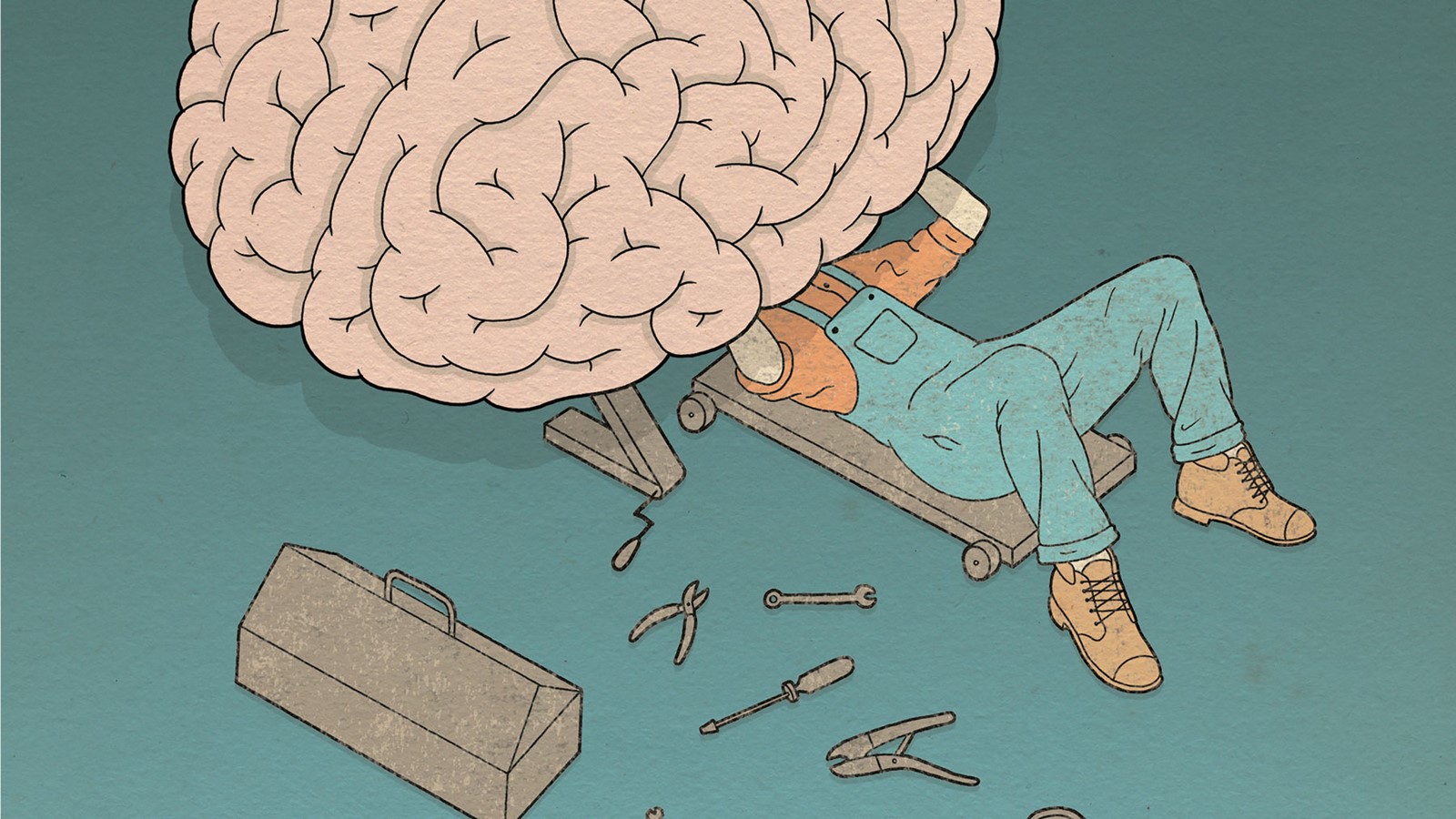
‘Every single aspect of my life improved and, remarkably, continues to do so’, is how James O’Brien, LBC talk-show host, describes the impact of therapy in our ‘It changed my life’ column in this issue. At times, it can be hard to hold onto the conviction that talking therapy truly can and does make a difference to many people, particularly when it feels like every client you’re working with is ‘stuck’. Which is perhaps part of the reason why I devoured James’s new book, How Not to Be Wrong (WH Allen), in one sitting, as it’s a testament to the truly life-changing power of talking therapy and being properly listened to.
Although what drove him, reluctantly, to seek help in the first place was what he describes as his failure to be the husband and father he wanted to be, the work itself unravelled the lasting impact of the physical and emotional trauma he experienced at boarding school. That unpeeling of layers changed not just his relationship with himself and his loved ones but also the way he relates to every human being he meets. His memoir is a remarkably honest account of how therapy was the catalyst for changing his mind on everything from racial prejudice to emotional vulnerability, fat-shaming and tattoos, because he learned to dismantle his defences and preconceived ideas and be open to truly listening to and hearing other people. If you’re looking for some summer reading that will renew your commitment and love for your work, I highly recommend it.
Part of what James questioned in therapy was the internalised belief that he and many other men grew up with – that vulnerability is weakness and being permanently primed to defend against attack is a smart and necessary way to live. Post-#MeToo, much has been written about ‘toxic masculinity’, but the question of nature and nurture, which ‘masculine’ traits are inherent and which are socially and culturally acquired, is complex. Catherine Jackson accepted the challenge to delve into that subject for our ‘Big issue’ this month. As one of the interviewees, John Barry, currently Chair of the British Psychological Society’s Male Psychology section, argues, are we now pathologising masculinity to the extent that we are actively deterring men from seeking therapy? And are we, likewise, trying to force men into a way of being that just isn’t what men ‘do’? What is wrong with acting and thinking? Do men have to feel to be ‘good clients’? Through interviews with practitioners and academics, Catherine explores our understanding of the psychology of manhood, the positives and negatives of traditional notions of masculinity and what we need to do as a profession to help them flourish. There was so much to say on this subject that we had to cut Catherine’s article by a third to fit the space in the hard copy of the magazine. If you’d like to read it in full, you can find it in our online version.
If talking therapy doesn’t always meet men’s needs, then what could help them in times of crisis? For Mike Sands, who writes our ‘Self-care’ article this month, it was walking. He describes how he used long, solitary walks to ground and stabilise himself while in recovery from active alcoholism and, later, while setting up in private practice. ‘Daily walking brings my consciousness and existence together like a compass and a map,’ he says. I would like to thank Mike for sharing his experiences.
You may notice this is the ‘July/August’ issue. This is just a name change and it doesn’t mean we’re going bimonthly or dropping any issues – Therapy Today has never been published in August (or January).
Sally Brown
Editor
Main features
Regulars
From the chair
‘It’s been difficult to escape the buzz created by BACP’s 27th Annual Research Conference in May’
Natalie Bailey gives an update
It changed my life
‘I had convinced myself that being brutalised as a boy had done me good'
James O'Brien writes our client column
Talking point
Lucky numbers: What is your optimal client caseload?
Dilemmas
Therapist safety: Our ethics team considers this month's dilemmas
Supervision
To what extent is a supervisor responsible for a supervisee’s client work?
Analyse me
Nemone Metaxas speaks for herself
